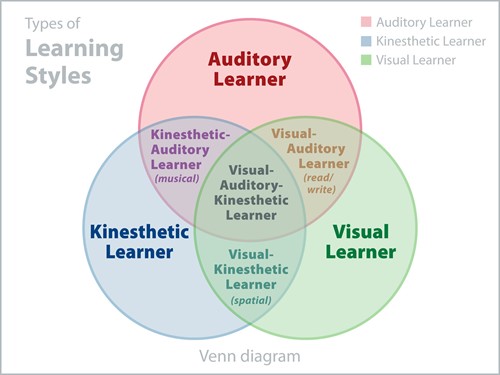Is English hard to learn?

Is English hard to learn? Some aspects are hard and others are easy. In this article I will show you that with the right teacher and approach English can be easy to learn for everyone. Reading time: 3 minutes
Everyone who wants to learn English has the same question: “Is English hard to learn?” The answer to that question is both yes and no. There are aspects to the English language which make it very easy to master, and there are other features that almost every student struggles with. Mind you, so do the native English speakers. On top of that, the ease with which you learn a language also depends on your own background and knowledge and, of course, on the teacher. The question - is English hard to learn – is difficult to answer without knowing a bit about you. But there is good news. No matter how hard learning English will be for you, there are ways to make it easier for everybody. The answer to the question – is English hard to learn – can, with the right teacher and the right plan, be ‘no’ for every student.
Why is English hard to learn?
Without discouraging the beginning student too much, there are several aspects to the English language which can be hard to master. The most common hurdles that students come across are listed here.
- Pronunciation: unfortunately the pronunciation of English is not straightforward. The words enough and stuff both end in the sound /f/ but are written differently. There is no way the right pronunciation of ‘enough’ can be guessed if you do not know the word. Why does the second syllable of ‘women’ sound like /min/ when it is written ‘men’ and why is the word ‘men’ not pronounced as /min/? When you know English, this is something you have learned, but imagine being a beginner having no rules as to why a word is pronounced as it is. For this reason spelling English words as you hear them also becomes a challenge.
- Many varieties: when you learn English in a class, it is usually taught in American English or British English. A plain and clear accent at least. Then, as you move to an English speaking country or you meet an English native speaker, you realise that what you learned is not what reality is. There are so many varieties and accents of English, that even English native speakers have difficulty understanding some of them. Some accents, like Scottish, are very strong and have their own grammar system to complicate it even more.
- Exceptions: the last reason why English is hard to learn is because there are no strict rules. Latin is an example of a language that had a very clear grammar system that you could learn by heart. Some languages nowadays, like Serbian, are still very structured. English also has grammar you can learn, but you will find out soon that to every grammar rule there is an exception to memorise as well. These exceptions, plus the other two reasons mentioned above, suggest that the answer to the question – is English hard to learn - should be answered with ‘yes’.
What makes English easy to learn?
It is not all bad. Even though we would answer the question – is English hard to learn – with a yes, there are also reasons to smile. English is in many ways an over-simplified language, because the noun cases have almost completely disappeared. In the Middle Ages English was also a heavily inflected language, but because of the invasion of the Vikings, the French and other influences from the outside, these belong to the past. Would you learn Finnish, you would have to deal with 16 cases but in English, only a few remnants of the inflective past can still be seen. Who/whom is an example of that, as well as the genitive ‘s to indicate possession.
English has developed from the same original language as German and Dutch and these together are grouped as the West-Germanic languages. Whereas German still has all four noun cases, these have all but disappeared in English. It can be said that English is the language of the three that has advanced and simplified the most. And that is something that you, as a new English learner, will definitely benefit from. Is English hard to learn? When comparing it to German, the answer is no.
Personal backgrounds
Having said that, your personal background might be a reason why two students would answer the same question - is English hard to learn – with a different reply. And the reason for this has a lot to do with your own background. A simplified language might be easier to learn for people who speak a language which is not heavily inflected by cases and word-endings. But if you are Hungarian, the whole meaning of a word can change simply by adding a certain letter to the end. Slavic languages use no articles, so how do you explain the meaning of ‘the’ ‘a’ and ‘an’ to them?
Another reason why the answer to the question - is English hard to learn - could be no is if you are not familiar with the Latin alphabet. If your native language is Mandarin, for example, the fact that letters only represent sounds and no meaning is very difficult to fathom. The signs in their language do hold meaning. They do not build up words with a set amount of available letters, so it would be hard trying to get your head around a completely new alphabet.
Different learners, different methods

On top of that, everyone learns in a different way. A distinction is made between at least three different learner types and these range from visual learners, to auditory learners to kinaesthetic (hands-on) learners. To make it worse, you can also be a combination of those. English is hard to learn if a visual learner is taught by reading a book and kinaesthetic learner has to watch video’s all the time. If you are taught in a way that stimulates the type of learner that you are, it will be much easier for you to master any language. Try this quiz to see which learner type you are.
It all comes down to the teacher
Is English hard to learn? The answer is no, if you are taught properly. A good teacher recognises the easy- and the hard parts of learning the language per student by finding out about their background and their native language. He or she will do a test, to see what kind of learner the student is and adjust the classes to that. This will be a great basis for making learning as easy as possible. Of course, the student will need to make an effort as well and learn vocabulary, practice speech and writing and listen to English in use. Even a bit of grammar learning can be a great base for some. Together with the right teacher, you will be amazed with what you can do.
Janneke Mol Language Solutions is a company specialised in English lessons online and SEO copy writing. I also offer translation services (Dutch-English and English-Dutch) and Dutch language classes. If you are interested in what I have to offer, you can find all the necessary information on my website. Feel free to contact me through one of the options available.



